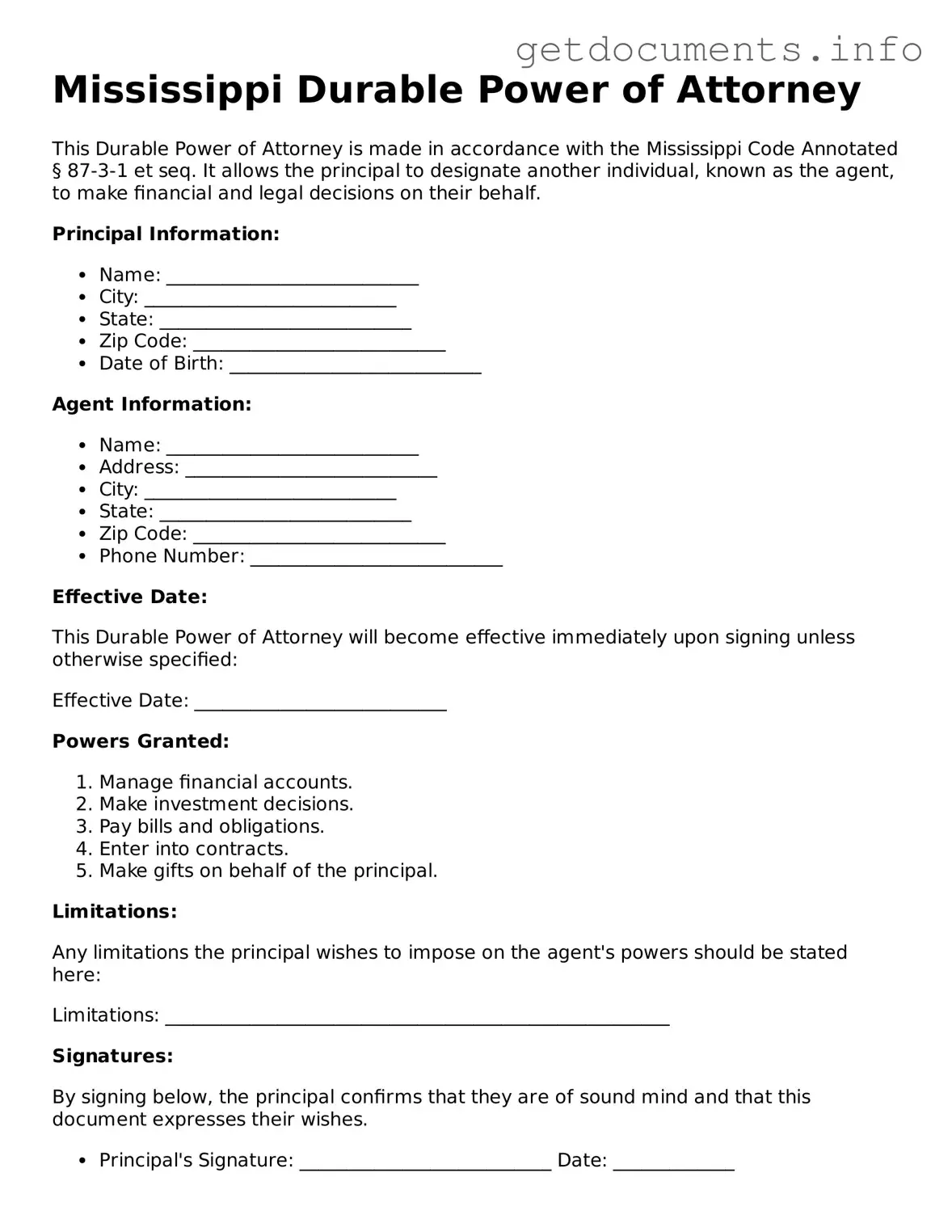Free Durable Power of Attorney Template for Mississippi
The Mississippi Durable Power of Attorney form is a legal document that allows an individual to appoint someone else to make financial and legal decisions on their behalf when they are unable to do so. This form ensures that your wishes are respected and that your affairs are managed according to your preferences. To take control of your future, consider filling out the form by clicking the button below.
Access Durable Power of Attorney Editor

Free Durable Power of Attorney Template for Mississippi
Access Durable Power of Attorney Editor
Got places to be? Complete the form fast
Fill out Durable Power of Attorney online and avoid printing or scanning.
Access Durable Power of Attorney Editor
or
⇩ PDF File
